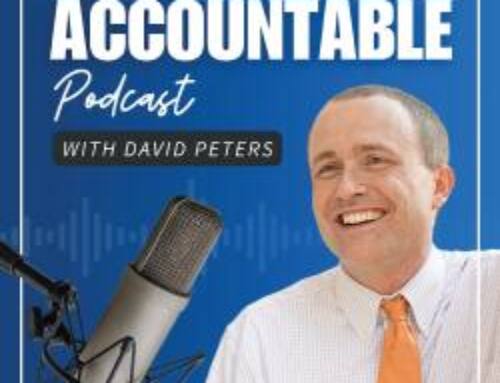Friday, June 12, 2020
Primary elections occurred this past Tuesday. Gov. Henry McMaster provided his recommendations to the General Assembly this week for the expenditure of the CARES Act funds.
The General Assembly will return to Columbia June 23-25. The Senate “Reopen South Carolina” committee met again this week.
RELATED HEADLINES
“McMaster extends coronavirus state of emergency, allows bowling alleys to open” (The State, June 12): McMaster also eliminated occupancy restrictions on retail businesses that limited places to five people per 1,000 square feet or 20% of posted occupancy, whichever was less. Guidelines for bowling alleys include having an empty lane between each active one, and requesting that customers bring their own bowling balls and shoes, if they have them.
“S.C. unemployment claims climb by more than 3,700” (Columbia Regional Business Report, June 11): South Carolina unemployment claims rose after nearly two months of decreases, with 22,734 people filing claims for the week ending June 6, according to S.C. Department of Employment and Workforce. It is a rise of 3,748 claims from the previous week and puts the state’s total claims from the past 12 weeks to 582,265.
“Audit faults SC Dept. of Commerce for lack of transparency, oversight over business incentives” (Post and Courier, June 11): According to an audit of the state Department of Commerce, conducted by the S.C. Legislative Audit Council after it was requested by a bipartisan group of lawmakers last year and which covered 2009-2019 as the S.C. Coordinating Council for Economic Development approved hundreds of businesses for state assistance, state officials did not take back taxpayer money from companies that failed to meet job and investment requirements included in their contracts. The coordinating council could have regained nearly $17 million in grant money, but commerce officials told auditors they were concerned the agency would spend more money on legal fees than it would recover.
PRIMARY ELECTIONS
Primary elections took place on Tuesday, June 9. All 170 seats in the SC General Assembly (124 House seats and 46 Senate seats) are up for election in November, along with numerous federal, county and local offices. Thirteen incumbent state senators and 25 incumbent House representatives faced primary opposition.
Two House incumbents lost their seats in primary races. Representative Jimmy Bales (D) was defeated by Jermaine Johnson in Richland County District 80. Bales has served since 1999. Representative Kit Spires (R) was defeated by Ryan McCabe for the District 96 seat in Lexington County. Spires has served since 2007.
Three incumbent legislators failed to garner 50.1% of votes needed to win and will face a runoff on June 23:
- Senator Luke Rankin (R), District 33 in Horry County, will face challenger John Gallman. Rankin has served since 1993 and is Chairman of the Senate Judiciary Committee.
- Representative Neal Collins (R), House District 5 in Pickens County, will face challenger Alan Quinn.
- Representative Bill Chumley (R), District 86 in Greenville/Spartanburg, will face challenger Chris Bennett.
On the federal side, U.S. Senator Lindsey Graham easily defeated his three GOP primary opponents. He will face former State Democratic Party Chairman Jaime Harrison in November. Senator Tim Scott is not on the ballot this year.
State Rep. Nancy Mace won the 1st District GOP race and will face incumbent Congressman Joe Cunningham (D) in November. Second District Congressman Joe Wilson easily won his GOP primary. Former South Carolina Gamecocks wide receiver Moe Brown won the Democratic primary nomination for the 5th District. He will face incumbent Ralph Norman (R) in November.
See all SC election results here.
SENATE REOPEN SOUTH CAROLINA
“Reopen South Carolina,” a Senate committee tasked with accepting any recommendations made by Gov. McMaster’s accelerateSC task force, met Thursday. The committee heard updates from their two subcommittees, which met Wednesday.
The PPE subcommittee chaired by Senator Katrina Shealy (R-Lexington) reported on presentations they received from the SC Emergency Management Division, the Department of Health and Environmental Control and the Department of Administration. They had all briefed the subcommittee on the state’s response and ability to acquire Personal Protective Equipment (PPE).
The Business Liability Subcommittee chaired by Senator Tom Davis (R-Beaufort), met Wednesday. Just like the House committee last week, they heard presentations strongly in favor of limited liability legislation by the SC Chamber of Commerce, the SC Manufacturers Alliance and the SC Hospital Association. Each noted support for temporary legislation for the duration of the pandemic to ensure struggling businesses and healthcare workers are not further burdened with the threat of lawsuits. Ten states have passed “Safe Harbor” legislation, including North Carolina, Georgia, Alabama and Tennessee. It was noted those four states are South Carolina’s biggest competitors in recruiting business and industry.
The South Carolina Association of Justice testified that fear of lawsuits is being grossly exaggerated and called the legislation a solution in search of a problem. The Injured Workers’ Advocates also spoke against the proposed legislation. Their main point once again was to make clear the state’s Workers Compensation Law is unlikely to cover COVID-19 cases as a compensable claim. The law would need to be amended if the desire is to make these cases compensable.
The committee will review recommendations requiring legislative actions, including considering best practices for business operations, safe harbors for potential COVID-19 liability, continued workforce development and addressing the increase in unemployment.
The committee is chaired by Thomas Alexander (R-Oconee/Pickens). Other committee members include Sens. Tom Davis (R-Beaufort), Kevin Johnson (D-Clarendon), Gerald Malloy (D-Darlington), Katrina Shealy (R-Lexington), Vincent Sheheen (D-Kershaw) and Ross Turner (R-Greenville).
accelerateSC
Gov. Henry McMaster provided his recommendations to the General Assembly on Wednesday for the expenditure of $1.9 billion received from the federal Coronavirus Aid Relief and Economic Security (CARES) Act.
The recommendations were provided to the governor by the accelerateSC Task Force. The committee, created by Gov. McMaster, was tasked to conduct a thorough and complete review of the CARES Act. They were also tasked with providing expenditure recommendations to the governor for the $1.9 billion Coronavirus Relief Fund (CRF) included in the CARES Act for the reimbursement of South Carolina COVID-19 related expenses.
Gov. McMaster recommended authorization for the disbursal of CRF in two phases. The first phase should be done this month before the close of the fiscal year to address the most pressing and time-sensitive needs. The second phase of needs can be addressed by the General Assembly at a later date. The recommendations include:
- $500 million deposited into the unemployment insurance trust fund
- $225 million be directed for the reimbursement of verified and legitimate COVID-19 related expenses incurred after March 1, 2020, by state agencies, local governments, first responders, hospitals and institutions of higher education
- $215 million used to reimburse the public school districts that provide additional days of classroom instruction before the scheduled start of the school year or expand hours of operation
- $17 million for the acquisition and management of the state’s stockpile of personal protective equipment
- $250,000 should be directed to reimburse the cost of preparing a statewide broadband plan that identifies specific localized geographic communities lacking access
The General Assembly will reconvene June 23-25 to begin appropriating the funds. The governor’s recommendations can be found here.
CORONAVIRUS
Gov. McMaster has once again extended the State of Emergency as South Carolina businesses continue to open. To view all of the governor’s previous Executive Orders, go here.
For more information from SC DHEC on the virus, go here.
The DHEC Care Line is available to provide general information about COVID-19 by calling 1-855-472-3432 from 8 a.m.-6 p.m., seven days per week.
COVID-19 Screening & Testing Sites
Other helpful links:
accelerateSC is a one-stop website to help businesses and citizens connect to important information.
The Emergency Management Division provides links to important information, including stakeholders such as the SC Department on Aging, SC Childcare, the SC Department of Employment and Workforce, the Department of Revenue and the SC Department of Insurance.
South Carolina Department of Commerce for small business information and assistance.
For additional resources that may be beneficial to your organization’s recovery efforts, visit Haynsworth Sinkler Boyd’s COVID-19 Resources page (Copper Dome Strategies is a subsidiary of HSB).
South Carolina Health Alert Network
South Carolina COVID-19 Emergency Supply Sourcing & Manufacturing
HOUSE COVID-19 PUBLIC EDUCATION COMMITTEE
The House COVID-19 Public Education Committee met again Thursday. The committee was formed by House Speaker Jay Lucas (R-Hartsville) to evaluate disruptions caused by the pandemic and identify ways to provide relief in the K-12 system.
Thursday’s meeting focused on the expansion of rural broadband. The committee heard presentations from:
- Matt Hiatt, Director of Technology, Palmetto Care Connections
- Ben Breazeale on behalf of the South Carolina Television Association
- John Frick, VP of Governmental Relations, Electric Cooperatives of South Carolina and the South Carolina Telephone Coalition
The committee, chaired by Rep. Raye Felder (R-Fort Mill), will gather information and take testimony seeking recommendations to eliminate, suspend or modify current statutes and regulations.
accelerateED
The accelerateED Task Force met again Thursday and focused their discussions on plans to safely open schools in the fall. The key to opening safely includes communication with the public and contingency plans in place in the event of a resurgence of the virus in the fall.
Schools will re-open with a continuum of options, including on-campus and remote learning. Operational levels should include fully open and operational with in-person instruction and social distancing, hybrid operations with modified schedules, and fully closed with all students served through distance learning. Each district should consult with relevant stakeholders, legal counsel and liability insurance carriers when making decisions impacting attendance or operations. Recommendations will also include psychological counseling for students and the creation of mental health crisis response teams.
The Department of Education established the accelerateED Task Force comprised of educators and administrators representing all aspects of the K-12 public education system. The task force is charged with studying barriers to school operations and student learning during the COVID-19 pandemic and providing recommendations on how schools and districts can best restart. For more details, go here.
BOARD OF ECONOMIC ADVISORS
The state Board of Economic Advisors met Thursday but did not adjust the budget forecast for FY20-21. The BEA is statutorily charged to provide the General Assembly with the official revenue estimate for lawmakers to draft the annual state budget.
The BEA last month had for the second time lowered next year’s budget estimate, in this instance by $58.3 million. On April 10, the BEA agreed to lower the projected revenue estimate by $643.5 million for FY20-21. With the addition of last month’s $58.3 million reduction, that total became $701 million. Prior to the pandemic, the BEA had projected $888 million in new recurring revenue. That amount is now below $200 million. The estimated surplus of $567 million is now estimated to be $40 million. The state currently has $305 million in the Contingency Reserve Fund.
It was noted the state will have a much clearer picture of FY 20-21 when the state’s books are closed in August. Although they plan to meet again on July 23, they noted they will probably not adjust the estimate again until their August meeting. They plan to meet on Aug. 24 and then again on Aug. 31, where they will adopt the final estimate for the General Assembly, which is expected to return to Columbia in September to adopt the FY20-21 state budget.
BEA meeting handouts can be found here.
BUDGET – CONTINUING RESOLUTION
A Continuing Resolution H. 3411 is in effect that provides for the continued and uninterrupted operation of state government into the fiscal year beginning July 1, 2020. State government agencies will continue operating in FY21 with the same funding as it received in FY20. The General Assembly will return to Columbia June 23-25 for COVID-specific action and again in September to adopt a state budget for the remainder of FY20-21.
HOUSE COVID-19 LIABILITY PROTECTION REVIEW COMMITTEE
The House COVID-19 Liability Protection Committee scheduled for Thursday was canceled.
SINE DIE RESOLUTION
The General Assembly’s adopted Sine Die Resolution, S1194, allows the two Houses to continue past the mandatory May 14 Sine Die deadline to complete unfinished business.
Each House will stand adjourned to meet at the call of the President Pro Tem of the Senate and the Speaker of the House of Representatives. The House of Representatives announced it will return to Columbia for a two-day session on June 24 and 25, primarily to appropriate funds from the federal CARES Act. The Senate announced it will return on June 23. The resolution further authorizes the General Assembly to meet again in statewide session on Tuesday, Sept. 15, at noon and continue in statewide session until Sept. 24 for the consideration of specific matters, including the annual General Appropriations Act.
Unless the session is otherwise adjourned Sine Die at an earlier date, the 2020 session of the General Assembly shall stand adjourned Sine Die not later than 11:59 pm on Sunday, Nov. 8.
UP NEXT
The House COVID-19 Liability Protection Review Committee will meet next Tuesday at 1:00 pm.
REARVIEWS 2020
Thank you for following SCACPA’s ‘The View from the Dome’ for State House Developments on Tax Issues Through SC’s 2020 Legislative Session. Here is a review of our weekly updates.
Jan. 10: South Carolina’s Pending Tax Bills and Your 2020 Legislative Preview
Jan. 17: Gov. McMaster’s Executive Budget Calls for Tax Cuts, Rebates for Taxpayers
Jan. 31: House Subcommittee Hears Budget Request from SC Chief Justice to Improve Case Management System
Feb. 7: Senate Finance Committee Approves Business Personal Property Bill for DOR Filing
Feb. 14: Board of Economic Advisors Announces Largest Budget Surplus in SC History
Feb. 21: House Floor Debate is Up Next for Budget After Ways and Means Committee Plan Adopted
Feb. 28: House Members Have Upcoming Week to Study Budget Before Floor Debate
March 6: Education Reform Bill Moves from Senate to House; DHEC Tells of Coronavirus Resources
March 20: A Look Inside the $45M COVID-19 Relief Package for DHEC; Return of Legislators is on Hold
March 27: Legislative Session Remains Postponed; Candidate Filing Period Ends on March 30
April 17: McMaster Announces ‘Accelerate South Carolina’ Revitalization Plan, Details to Come
April 24: accelerateSC Revitalization Task Force Goes to Work
May 1: General Assembly Set to Return to State House on May 12
May 8: Gov. McMaster Announces that Indoor Dining in SC Can Resume on May 11
May 29: Gov. McMaster Will Now Review accelerateSC Committee’s Final Recommendations
To keep up with the latest news of SCACPA Advocacy, turn to the SCACPA Blog and our social media outlets.



